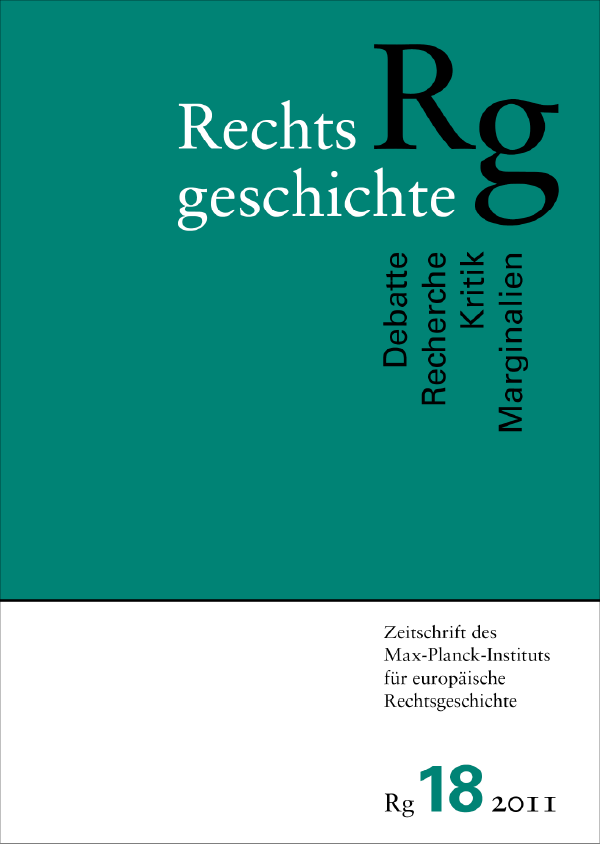Grundrechte der Staaten
Die Tradierung des Natur- und Völkerrechts der Aufklärung
DOI:
https://doi.org/10.12946/rg18/066-094Abstract
The so-called fundamental rights and duties of states were invented by natural law theory and exist in legal doctrine even today. They resulted from a transfer of the rights of the human individual to the state. What appeared in the middle of the 18th century in the works of Wolff and Vattel in a quite unsystematic and scattered way, was fully developed into a canon in the 19th century: Fundamental rights shifted into the centre of international law doctrine. They constituted the starting point of the international legal order as conceptualized by nearly all legal thinkers. Although an invention of natural law, they outlasted the 18th century and were even to be found in the works of some authors who considered themselves as positivists. Moreover, the general move towards »positivism« did not affect these rights, criticism of this view arising only at the end of the 19th century. Academic doctrine, therefore, was in conflict with the theory of the sources of international law. Their popularity resulted from the desire to have guiding principles in the international order. Most of these principles were materially attached to sovereignty: Fundamental rights emphasized the inviolable autonomy of the state as a legal subject no matter how international relations and international treaties developed.
Downloads
Published
How to Cite
Issue
Section
License
Copyright (c) 2011 Author

This work is licensed under a Creative Commons Attribution-NonCommercial-NoDerivatives 3.0 Unported License.





